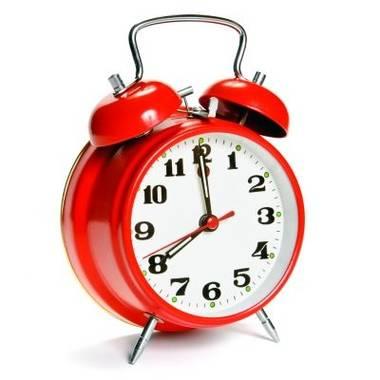With 47 million people suffering from sleep deprivation and 43 percent of American’s claiming they rarely get a good night’s sleep, according to a University of Minnesota study, it is no wonder there is now a National Sleep Awareness Week. The events, which ran March 5 through 11, focused on screenings and educating the public on how to get some proper shut eye. What may come as a shocker to most of us, however, is what follows NSAW: Daylight Saving Time (DST).
Why do we lose an hour of sleep after being told how beneficial it is to sleep well?
Daylight Saving Time began in World War I to conserve energy. Five years ago, the date in which we change the clocks moved to the second Sunday in March. Regardless of when we have to do it, we have to do it. And, boy, is it tough.
This year, from March 11 until November 4 (unless you’re in Arizona, Hawaii, American Samoa, Guam, Puerto Rico, the Virgin Islands, or the Commonwealth of Northern Mariana Islands), our clocks spring forward an hour and force us to lose an hour of sleep. Not only do we suffer a groggy Monday, but we are also putting ourselves at risk.
Charles Cziesler, M.D., Ph.D., who is the chief of the division of sleep medicine at Brigham and Women’s Hospital in Boston and professor and director of the division of sleep medicine at Harvard Medical School, says that cutting just one hour of sleep might not sound like a big deal but that springing forward increases the risk of car crashes and heart attacks significantly.
While driving statistics show only 1 percent of drivers crash because of drowsiness each year, this still totals 1.9 million drivers. A 1996 study found that the number of car accidents on the Monday after the beginning of Daylight Saving Time increase, the Huffington Post reported.
Heart attacks are more common because of the effects of sleep deprivation. Less sleep equals more buildup in arteries that leads to heart attacks. Also, people who get less sleep are often overweight and are at risk for heart problems even before the time change.
The good news: Sam J. Sugar, M.D., director of sleep services at the Pritikin Longevity Center and Spa, said that, although it can take up to a week to adjust to the hour lost, for most people it will only take a few days to be back on track. “Our brains are incredibly good at adjusting to anything we throw at them,” she said. “For almost everybody, it isn’t a problem.”
Also try to get some sun if you are feeling the time change. Robert Oexman, M.D., director of the Sleep to Live Institute said, “Sunlight helps us ‘retrain’ our circadian clocks and allows us to get back on the right time.”
If that isn’t enough, we can always catch up on our sleep in November, which is just a short eight months away.


